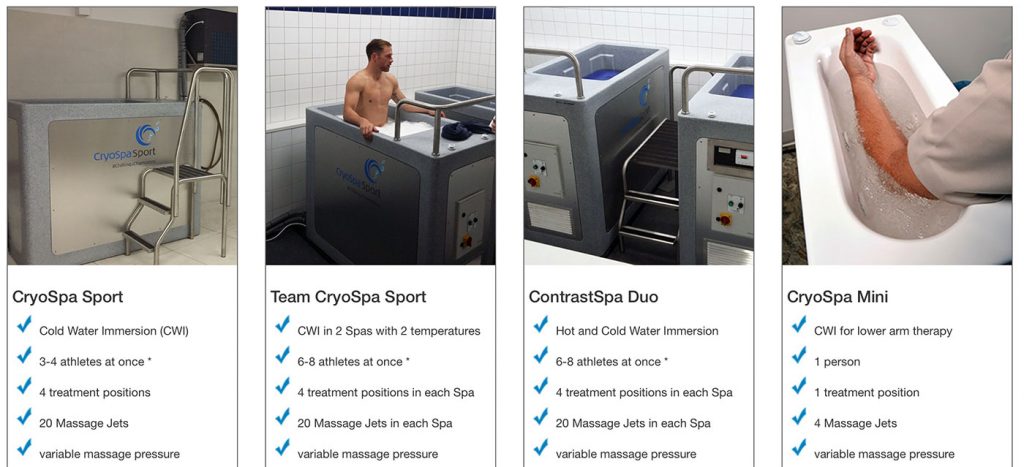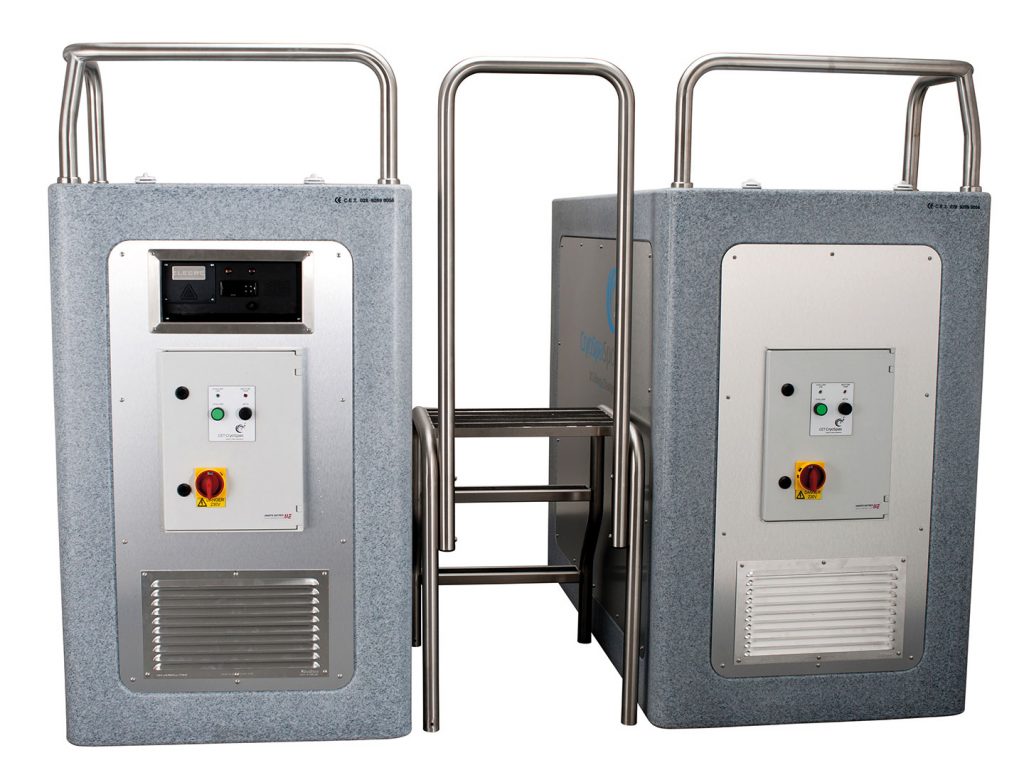Cold water immersion (CWI) is popular with sports people as a recovery protocol. After intense training or competition, cold water therapy helps to minimise the risk of injury and will accelerate physical readiness. A bath filled with ice is the traditional method of CWI. CET CryoSpas offer state-of-the-art CWI. They are more cost effective and less time consuming than traditional ice baths. They also offer various treatment options, including massage.

What are the benefits of cold water immersion?
Sports scientists and coaches often recommend their athletes and players take an ice bath immediately after intense physical exercise. This is because it will help to reduce delayed onset muscle soreness (DOMS). Ice baths are the most popular form of CWI, however, with new technology, ice baths are now far more advanced.
The advanced range of CET CryoSpa cold water therapy includes cold water immersion, warm water immersion, as well as, contrast bathing. This contrast bathing is possible in the CryoSpa ContrastSpa Duo, which enables subjects to alternate between cold and warm water therapy.

In fact, users of CWI, a form of cryotherapy, will tell you that an ice bath benefits them by:
- Shortening recovery time after physical exercise
- Minimising time out with a soft tissue injury
- Reducing fatigue which, in turn, will lower the risk of injury
- Treating muscle and joint soreness, strain and inflammation
- Promoting neural and cardiovascular system recovery
Effects of chronic cold-water immersion in highly trained athletes
There is numerous research investigating the acute effects of CWI in athletes. However, research analysing the effects of chronic CWI is scarce. Therefore, researchers of this study are investigating the effects of cold water therapy over a chronic period in highly trained athletes. Specifically, they are investigating effects during an intense 3-week pre-season phase in elite rugby athletes.
For this study, researchers randomise the elite male rugby union athletes into two groups. The groups are CWI (10 min at 10°C, n = 10) and passive recovery control (CON, n = 13) during 3 weeks of high-volume training. After each training day, the athletes undergo either cold water immersion or passive recovery control.
Results of the study find that CWI results in lower fatigue markers. Therefore, conclusions are that cold water therapy may provide some beneficial effect, reducing fatigue and soreness during the 3-weeks of intense training.
CWI plus massage is an effective recovery strategy
This new study in the International Journal of Sports Physiology and Performance investigates the effects of different recovery strategies on fatigue markers following a prolonged running exercise. Specifically, the study instigates active recovery, cold water immersion, massage and passive recovery.
For the study, subjects complete a half-marathon. Following this, they implement one of the recovery strategies. Various measurements are taken to assist with the assessment of each recovery strategy.
To restore subjective fatigue measures, the authors recommend CWI and massage. These subjective measures are DOMS and rate of perceived exertion. This is because CWI plus massage are more effective than passive recovery, with active recovery proving to be disadvantageous. In fact, in previous research, cold water immersion is shown to be effective at reducing DOMS after 24 hours, 48 hours and 96 hours of exercise.
CET CryoSpas cold water therapy solutions offer cold water therapy plus massage in one bath. In fact, depending on the model, CET CryoSpas ice baths feature 20 massage jets, four treatment positions, adjustable temperatures, cold water and/or hot water immersion.


One thought on “Effects of Chronic Cold Water Immersion in Highly Trained Athletes”